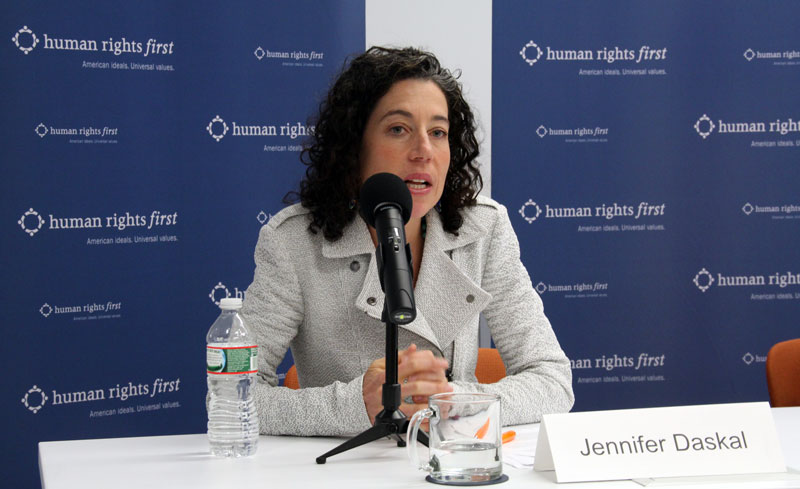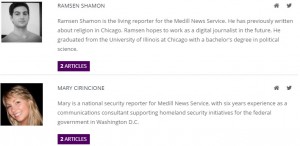WASHINGTON — Experts disagreed Wednesday on whether President Obama’s draft authorization for the use of military force goes too far, or doesn’t go far enough.
Obama’s proposed resolution has a three-year time limit, and once passed by Congress would override the 2002 AUMF used by President George W. Bush to take military action in Iraq.
In February, Obama requested new presidential powers to combat emerging threats posed by extremists in Iraq, Syria and neighboring nations.
“Al-Qaida was defeated during the surge in 2007-2008 — not destroyed,” said retired Army Col. Peter Mansoor at an American University discussion.
What emerged in the aftermath, he said, was ISIS.
“The rise of ISIS has everything to do with our decision to invade Iraq [in 2003], which was strategically misguided and opened up [a] Pandora’s box of problems which we’re dealing with today,” said Mansoor, who served as executive officer to Gen. David Petraeus during the 2007 surge in Iraq.
But the “Obama administration shares some of the blame” for the growth of the self-proclaimed Islamic State, Mansoor said, describing the White House’s current approach as “tenuous.”
But he favors Obama’s pursuit of military authorization, although he would like to see fewer constraints in the resolution.
“What we’re facing is a hybrid enemy … a very difficult enemy to attack. And to combat a hybrid force, you need a hybrid force,” Mansoor said. “We’re not invulnerable, and overseas, we’re definitely not as secure as we were pre-9/11.”
With that in mind, Mansoor recommended giving the president more leeway in the military force authorization.
“The authorization shouldn’t be constrained geographically, because the president needs to be authorized to combat ISIS wherever it exists,” he said.
That means no constraints on number of troops or type of force used — to include not ruling out ground forces, he said.
Adding a time limit, however, may not be a bad thing, Mansoor said. “It doesn’t mean the campaign ends, just that the authorization needs to be renewed.”
A different perspective on the military force authorization issue emerged in a separate discussion sponsored by Human Rights First in Washington.
“No [set] geographic limitations are an issue, [as are] no real limits on boots on the ground,” said Gene Healy, vice president of the Cato Institute, a libertarian think tank.
“The phrase from the president’s draft AUMF is, ‘enduring offensive ground combat operations.’ What are enduring offensive combat operations? Does that mean shorter than Operation Enduring Freedom, which was the military moniker for the war in Afghanistan?”
American University law professor Jennifer Daskal reiterated concerns with Obama’s draft of the authorization. “We shouldn’t provide open-ended delegation to the executive [branch] to engage in military actions all around the world with few limitations,” she said. “The authority ought to be tailored to whatever the decision is made in terms of what military authorities are needed to effectively wage this fight.”
Obama’s new request for a military force authorization would not repeal the existing 2001 AUMF that enabled Bush to go after those responsible for the 9/11 attacks.
“If any AUMF that comes out of Congress does not make clear that the earlier authority does not apply to the fight against ISIS, the president can simply do an end-run around any restrictions that are in the new AUMF,” Healy said.
Daskal said that a sunset provision must be included because the 2001 AUMF expands presidential authority to wage war. She also expressed concerns that the draft only vaguely defines the term “associated forces,” which could lead to an “ever-expanding and truly global conflict against terrorism that the Obama administration has so long, and rightfully, decried.”
Section 5 of Obama’s draft AUMF defines associated persons or forces as, “individuals and organizations fighting for, on behalf of, or alongside [ISIS] or any closely related successor entity in hostilities against the Unites States or its coalition partners.”
As to whether Americans should be concerned about beefing up presidential power in this area, Mansoor opined: “I think if the president made the case that this was important to our national security, and [then] built a bipartisan approach, the American people would agree.”



